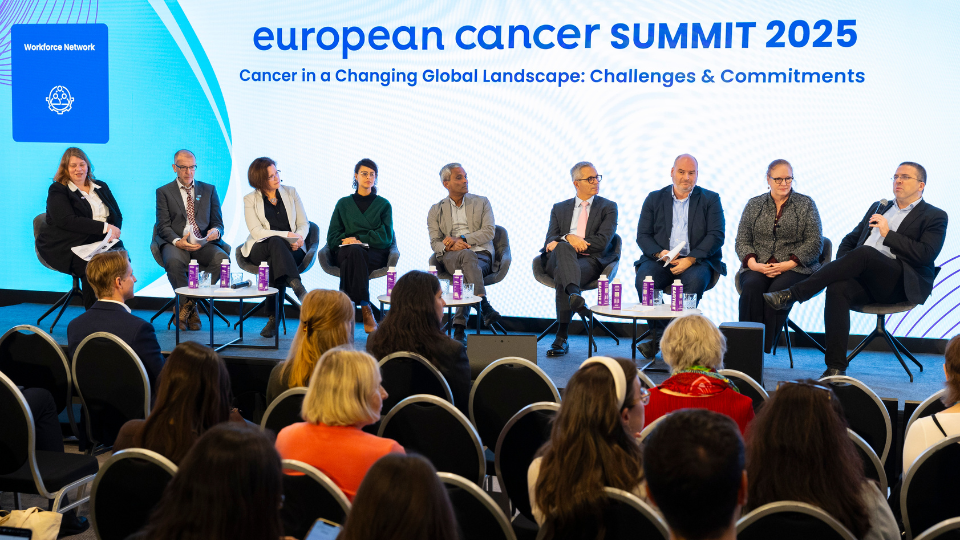Workforce Network
Contact the NetworkCancer care and treatment are simply not possible without the cancer workforce. At the European level, there is much that can be progressed in respect to such issues: as elevating training and development; promoting labour mobility and professional qualification recognition; and safeguarding working conditions.
For these reasons and more, ECO’s Network on Workforce brings together professions and others to speak as one about the unaddressed policy needs at the European level that could help ensure the right of every cancer patient to specialised multidisciplinary cancer care is upheld and made a reality.
This Network is presently focused on:
- Promoting recommendations to EU institutions, national governments and others on the best and most available means to address Europe’s oncology workforce shortage crisis; and,
- Ensuring inputs from the cancer community to the EU’s agenda on occupational health and safety
To find out more about this Network, or support our work, please contact us
European Cancer Summit: Watch the 2025 Workforce Session - Strengthening the Oncology Workforce: Addressing Shortages, Well-being, and Future Skills
Did you join us for World Health Worker Week?
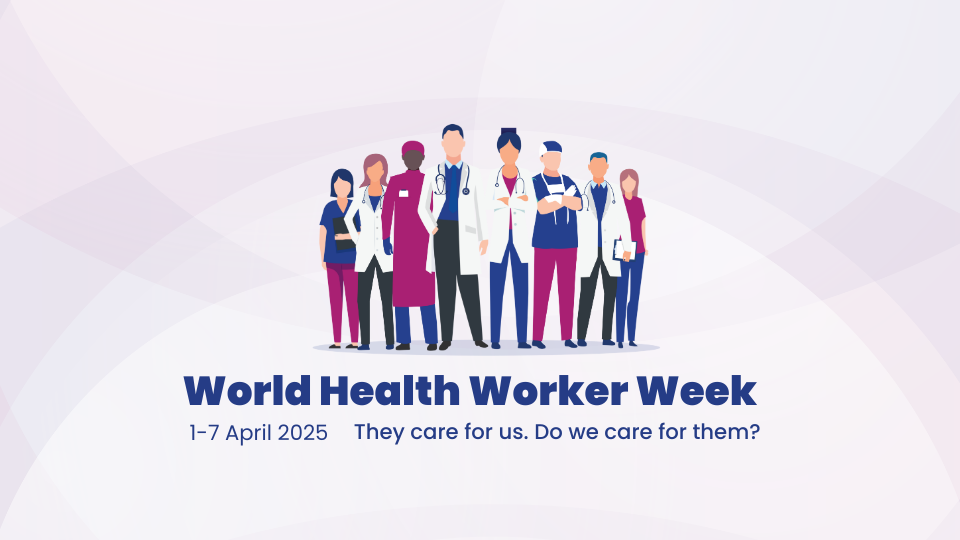
In November 2024, the European Cancer Organisation published Under Pressure: Safeguarding the health of Europe’s oncology workforce. Since then, we have called for a comprehensive European action plan that reduces administrative burden, ensures fair compensation, and improves continuous professional development.
On World Health Worker Week (1-7 April 2025), the cancer community came together on social media to raise our voices with an urgent plea for policy makers across Europe: We have waited long enough. We need immediate action to address the growing cancer workforce crisis.
Through joint action, and a partnership with the Frontline Health Workers Coalition, we achieved over 17,000 impacts of the hashtag #CancerWorkforce in social media.
Would you like to join us next year? Follow the campaign here.
Under Pressure: Safeguarding the Health of Europe's Oncology Workforce
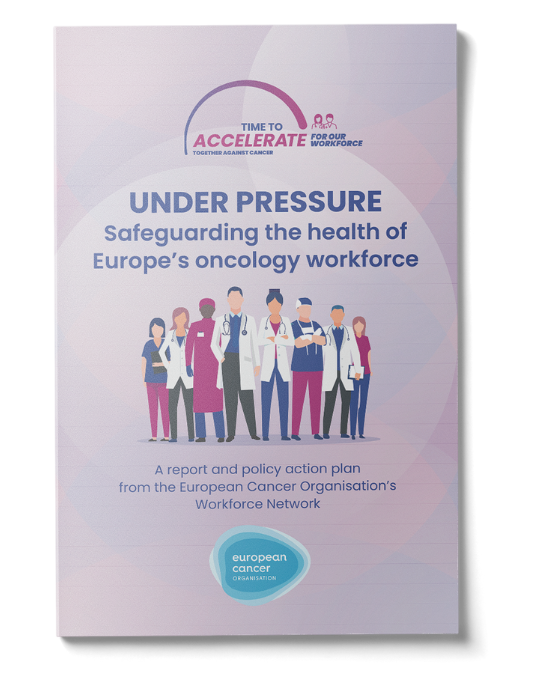
Ensuring a well-supported, adequately staffed oncology workforce is essential for advancing cancer prevention, enhancing the quality of care, and ultimately reducing mortality rates across Europe. At the European Cancer Summit, under the leadership of its Workforce Network, ECO unveiled the results of an extensive Pan-European survey of more than 700 cancer professionals from 30 countries – together with many of their personal stories.
Among the key highlights of the survey:
- 19% of cancer professionals experience high levels of burnout
- 51% say their supervisors do not care about their well-being
- 52% report that their workload seems 'endless'
- 55% report that administrative procedures make their job too difficult
- 77% reported often needing to work overtime.
This report is part of our ECO campaign A Cancer Workforce in Crisis, a pan-European campaign focused on changing policies within national governments and medical institutions to improve working conditions for cancer professionals throughout Europe.

We urge the European Commission and the European Parliament to develop a comprehensive Cancer Workforce Action Plan. This should include the achievement of
- Healthy work environments, ensuring the mental and physical health of the workforce;
- Investment in the cancer workforce's skills and knowledge to ensure patients benefit from the latest advancements in cancer care and treatment;
- The professional development and career support of the cancer workforce;
- Harmonised, and fully digitised healthcare systems to reduce the bureaucratic burden.
See the campaign here.
INTERACT-EUROPE 100: Implementing an Inter-Specialty Cancer Training Programme in 100 Cancer Centres Across Europe
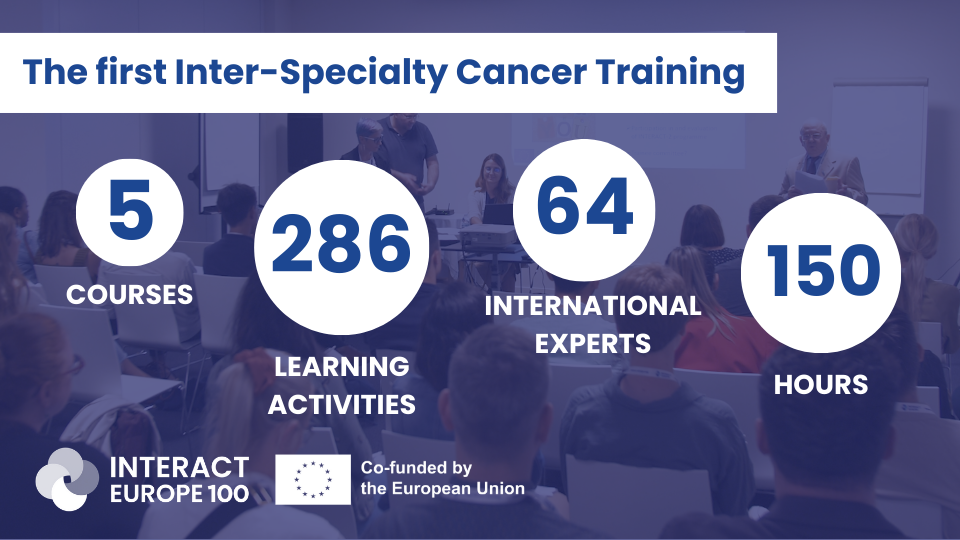
Cancer patients in Europe are treated by an array of different specialties and professions: medical oncologists, radiation oncologists, surgical oncologists, cancer nurses and many others. Teamwork is essential. But high functioning teamwork requires a clear understanding of each other’s roles and competencies.
INTERACT-EUROPE 100 is an ambitious project to provide cancer care professionals with the training necessary to enhance this collaboration – now coming to 100 cancer centres across Europe.
Building upon the work of INTERACT-EUROPE, its predecessor, INTERACT-EUROPE 100 is a 36-month project (December 2023 – December 2026). It is co-funded by the European Union under the EU4Health programme 2021-2027 as part of Europe’s Beating Cancer Plan. It involves 38 partner organisations from 15 European countries implementing this novel training curriculum.
Learn more about the project here.
Accreditation Council of Oncology in Europe (ACOE)
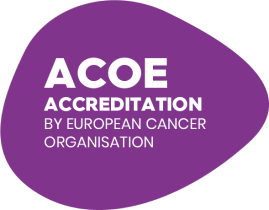 A well-trained workforce that constantly updates its knowledge is critical in disease prevention and promoting quality care. Continuing professional development and education is a mainstay requirement to make sure this is the case.
A well-trained workforce that constantly updates its knowledge is critical in disease prevention and promoting quality care. Continuing professional development and education is a mainstay requirement to make sure this is the case.
The Accreditation Council of Oncology in Europe (ACOE) provides accreditation to Continuing Medical Education (CME) providers (including Member Societies of the European Cancer Organisation) for the benefit of participants receiving education in oncology. Read more here.
European Cancer Summit 2024 Session: Under Pressure - Safeguarding the health of Europe's oncology workforce from our Workforce Network
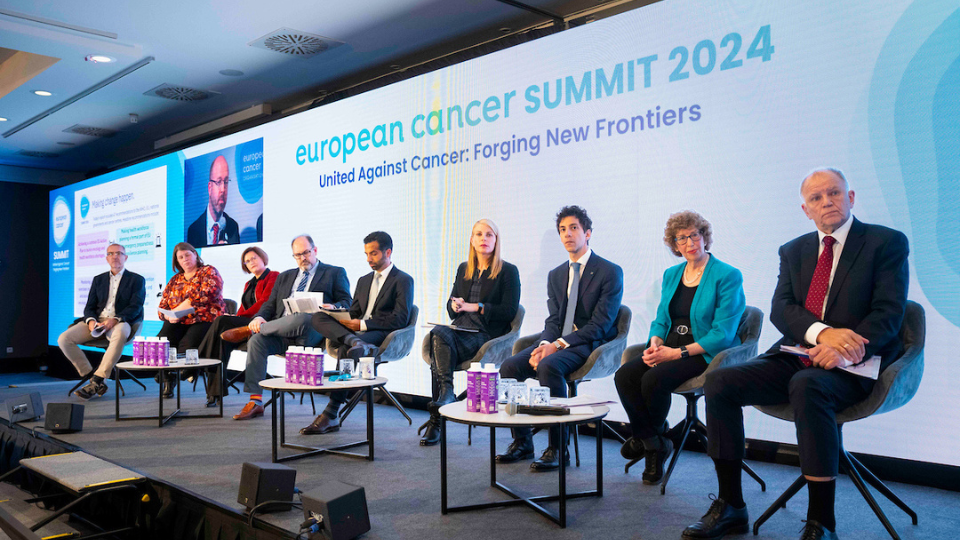
The Workforce Crisis in oncology and beyond has been a major area of focus for our Workforce Network over the past 12 months and in this session, we presented the results of our comprehensive survey and unveiled our report and recommendations. Our speakers shared their experiences and what their organisations are doing to address this crucial issue.
Watch the session recording here to discover the rich and diverse discussions of this session.
To find out more about this Network, or support our work, please contact us


